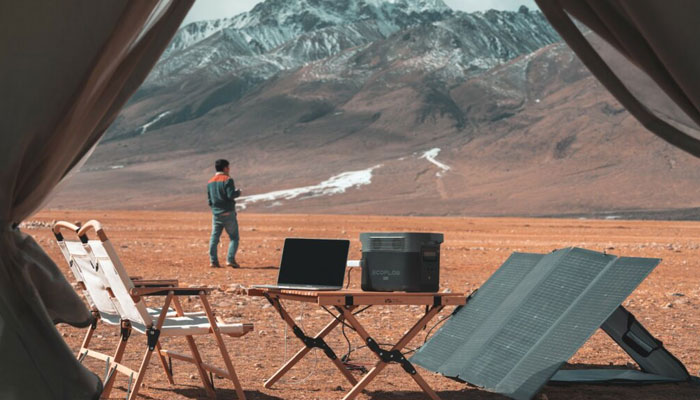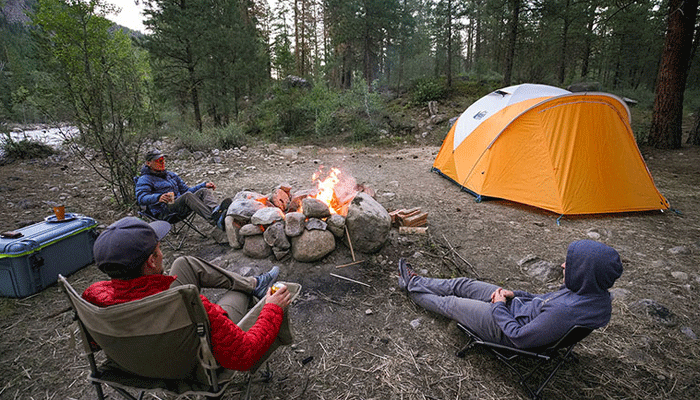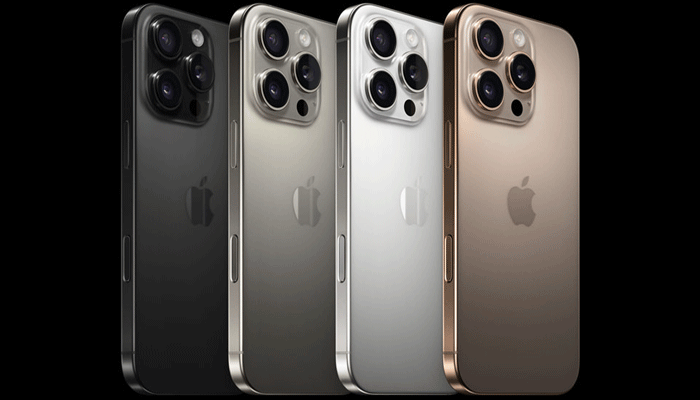
Portable solar panels are the hardworking bees of the power world. They supply the juice that powers our electronics and batteries, even when the sun plays hard to get.
When choosing a panel, it is important to balance energy needs with portability and convenience. Consider things like price, size, and wattage to ensure you have the best option for your needs.
Size
The size of a portable solar panel determines how much power it can generate. To find the right panel for your needs, start by creating a list of appliances that you want to power. Using this worksheet, add up the total wattage required by these devices. For example, if you plan to power lights, mobile phones, and a small fan, the total wattage may be 80 W.
Once you know the wattage you need, select a solar panel that matches or exceeds this amount. A higher wattage allows for more charging and faster charging. However, larger panels are usually heavier and bulkier. This may not be a problem for car campers or hikers, but it can become a burden on longer outdoor treks.
You can also increase output by angling your panel to achieve the most direct sun exposure. Some models come with built-in kickstands to help you adjust the angle throughout the day as the sun moves. Remember that peak sunlight hours vary by location, so check for more specific information before selecting your ideal model.
Most portable solar panels can also be connected to a solar charge controller or inverter. This setup requires more setup and wiring, but it increases efficiency and allows multiple panels to be powered at once. If you choose to wire your panels in this manner, it is important to use a circuit breaker that is rated to handle the full short-circuit current of the array plus 20% to avoid nuisance tripping.
If you are looking for a simple, portable solar panel that can keep your mobile phone charged and other appliances powered without the need for an outlet, consider the Jackery SolarSaga 200-Watt Portable Monocrystalline Solar Panel. This foldable model can easily fit in most backpacks and is designed with convenience in mind, folding up into a sleek carry case with a convenient carrying handle and an adjustable corrosion-resistant stand. For more serious hiking and camping trips, the EcoFlow 160W Portable Suitcase Solar Panel offers even more power with its dual monocrystalline solar panels. This suitcase is waterproof and comes with a durable carry bag and an integrated solar charge controller.
Weight
When you think of solar panels, your mind may jump to an image of vast fields of shiny black slabs angled toward the sun. However, portable solar panels employ the same energy-capturing technology in more compact designs that make them perfect for a range of applications. They’re great for campers who want to use renewable energy, or anyone looking for a simple way to charge their electronics on the go. They’re also an excellent way to test out the potential for solar power before investing in a full rooftop array.
When deciding which portable solar panel to buy, consider the weight and materials used in its construction. Thin-film solar panels tend to be lighter than monocrystalline or polycrystalline ones, and they’re typically made from more durable materials like ABS plastic. However, the specific wattage and other features can also influence the panel’s weight.
In general, larger solar panels are a little heavier than smaller ones. This is because they’re usually constructed from many cells, each of which must be rigid to prevent cracking as the panels generate electricity. This is why it’s important to choose a quality product that meets your needs and can be safely transported.
The Jackery SolarSaga 200-Watt Solar Panel is one of the lightest options on our list, weighing just 21.2 pounds. It also has a convenient carry case, built-in kickstands, and an impressive efficiency rating of up to 24.3%. On the other hand, the EcoFlow 160W Solar Panel is a bit heavier at 15.4 pounds, but it’s still a very portable option thanks to its foldable design and corrosion-resistant aluminum stand.
If you’re shopping for a heavy-duty portable solar panel, try the Bluetti PV120S. It’s a little more expensive per watt than the Jackery, but it has enough power to reliably charge a laptop and a few other devices in a few hours. The panel is also a great choice for RV excursions or car camping because of its sturdy build and versatile mounts that allow you to angle the panel toward the sun throughout the day.
If you’re looking to save money on solar power and other electronic appliances, check out Electronics Promo Codes. They offer great discounts on a variety of products including solar panels, batteries, chargers, and more. With their promo codes, you can save big on your next purchase. Whether you’re a homeowner looking to go green or just need new electronics, SavingGain.com has you covered. Shop now and start saving!
Efficiency
When it comes to solar power, conversion efficiency is a primary factor. The higher the panel’s efficiency, the more solar energy it can absorb and convert into usable electricity. This is especially true for portable solar panels, which need to be compact and lightweight to be easily transported.
A high-efficiency solar panel is also able to produce more energy over an extended time than a lower-efficiency model. This can be important for campers and other travelers who need to rely on their solar panels for an extended amount of time, or for people living in remote areas where the sun isn’t always visible.
While the efficiency of a portable solar panel is important, it’s also essential to consider its other features and benefits. For example, some solar panels come with built-in USB ports and other accessories that make it easier to connect and charge devices. Others are designed to be more durable and waterproof, making them suitable for use in a variety of different environments. And finally, many portable solar panels are foldable, which can help to save space and make them easier to transport.
Another important factor to consider when choosing a portable solar panel is its ability to withstand different weather conditions. Ideally, you want to choose a solar panel that can operate in bright sunlight and a range of temperatures. This is because different weather conditions can have a significant impact on the efficiency of a solar panel.
To test the durability and efficiency of a portable solar panel, you can use a multimeter to measure its open circuit voltage (Voc). To do this, first, prepare the multimeter by plugging the black probe into the COM terminal and the red probe into the positive MC4 connector on the solar panel. Next, set the multimeter to the DC voltage setting and read the voltage on the screen. If the voltage on the multimeter is close to Voc, it’s a good sign that the solar panel is in good condition.
Valley Food Storage currently offers a budget-friendly solar panel that can power small electronics and devices. By using Valley Food Storage Coupon Code provided, customers can receive a discount on their purchase of this product. This solar panel is ideal for camping trips, emergency preparedness kits, and for those who want to reduce their carbon footprint. It is lightweight and portable, making it easy to transport. With this solar panel, you can enjoy the benefits of renewable energy without breaking the bank.
A portable solar panel is an excellent way to get started with solar energy. But it’s important to remember that solar panels aren’t a replacement for a full-size home battery generator. They won’t be able to generate enough energy to power an entire household, or even an average American home, which requires about 30 kWh of electricity per day.
Warranty
As a big investment, your solar panel must come with a solid warranty to give you peace of mind. The terms and conditions of a warranty will vary by manufacturer, but they will typically include product, power, and workmanship warranties. A typical product warranty will cover the cost of replacing a solar panel that has failed due to material and workmanship defects. Many companies also offer a labor warranty to help with any installation costs that are not covered by the product warranty.
Most manufacturers will provide a minimum of a 10-year product warranty on their portable solar panels. However, many premium brands are now offering 20 and 25-year warranties. This ensures that you can get a new panel should you fail to meet expectations within the first few years of use. It’s also worth looking at the brand of solar panel you choose, as a few of the major players in the market have lengthy warranties, providing a strong sense of confidence that they will be around to honor their commitments long into the future.
In addition to the standard product and power warranties, some companies may offer their own workmanship and service guarantees. These are separate from the standard manufacturer warranties and help to provide a total guarantee of solar energy production over the lifespan of the panels. This type of guarantee is particularly useful when your solar system fails to meet expectations for one reason or another, such as a change in the weather during that period.
A performance or power warranty is also beneficial as it helps to ensure that your solar panels will remain efficient and produce a high amount of energy over the years. This is important because if your solar panel efficiency starts dropping too quickly, you’ll lose out on a significant amount of energy savings.
A power/performance warranty will typically last longer than a product/product workmanship warranty and covers the loss of energy production over the lifetime of your panels. The most common guarantee offered by manufacturers is a 25-year warranty, which will replace your panels if they start to lose productivity. Other manufacturers have a more specific guarantee, such as a 0.25% degradation rate over the lifespan of your panels.
Conclusion
Choosing the best portable solar panel requires careful consideration of factors such as power output, weight, size, durability, and price. By following the tips and guidelines provided in this guide, you can make an informed decision and select a solar panel that meets your needs and budget. Remember to prioritize quality and efficiency over price, and invest in a reliable and long-lasting solar panel that will serve you well for years to come.








